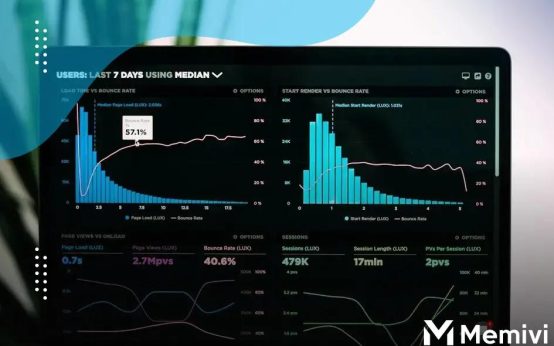
Investing in tech startups is gaining momentum, particularly with the exponential growth expected by 2025. From AI advancements to sustainable technologies, the potential returns are significant. Understanding key trends and potential risks is crucial for successful investment. This article delves into the promising sectors and untapped markets poised to shape the future of tech startup investments.
The Rise of AI and Machine Learning
Artificial intelligence (AI) and machine learning are playing transformative roles in the landscape of tech startups, especially foreseen in the approach to 2025. These technologies are driving innovation, optimizing processes, and creating opportunities in sectors like healthcare, finance, and entertainment.
AI’s impact on Tech Startups: AI startups are emerging rapidly, providing products and services that enhance decision-making and automate repetitive tasks. This efficiency is paramount in startups, where resources are often limited.
Machine Learning, a subset of AI, enables systems to learn from data without being explicitly programmed. For tech startups, this means the ability to adapt and improve over time, leading to better customer experiences and operational efficiencies.
The integration of AI and machine learning into tech startups is not just a trend; it is becoming essential for staying competitive. As AI technologies become more accessible, their democratization will likely spur a wave of innovation in new and existing startups.
With the continuous advancements in AI technology, there is also an increase in the demand for AI talent and research development, guiding investors to look for startups that prioritize strong AI-driven solutions. Startups not only harness AI to solve complex problems but also to forecast market trends and adapt strategies, positioning themselves strategically for growth as we approach 2025.
Sustainable Technology and Its Potential

In recent years, sustainable technology has transitioned from a passionate movement to a principal focus within the investment sphere. Tech startups are now increasingly embedding sustainability into their core business models. Instead of being a mere afterthought, sustainable practices are becoming pivotal.
The convergence of innovative technology and sustainability promises transformative potential. As we edge toward 2025, ventures focusing on renewable energy solutions, waste reduction, and efficient resource management are gaining traction. Investors are beginning to see that integrating sustainability isn’t only ethical but lucrative over the long term.
Tech entrepreneurs are also leveraging advancements such as AI and IoT to optimize energy consumption and develop eco-friendly products. These technologies can predict energy usage patterns, thus reducing waste and lowering carbon footprints. This innovation taps into a growing market of environmentally-conscious consumers.
Furthermore, governments worldwide are increasingly providing incentives for sustainable development. This, in turn, encourages startups to pursue environmentally responsible innovations. As regulations tighten around carbon emissions and resource usage, companies with established sustainable practices are poised to lead.
The ongoing transformation toward sustainable technology signifies a profound shift in how both consumers and industries approach development and consumption. For investors keen on future-proofing their portfolios, focusing on sustainable tech startups could offer substantial returns and contribute positively to the global ecosystem.
The Global Reach of Tech Startups
Tech startups have rapidly expanded their influence across the globe, becoming key players in the economy of numerous countries. This extensive reach is a testament to their innovative nature and the digital world’s ability to connect people worldwide. From Silicon Valley to emerging markets in Asia and Africa, tech startups are catalyzing growth and bringing disruptive technologies to various industries.
Emerging Markets and Opportunities: In regions like Southeast Asia, tech startups are addressing local issues with tailored solutions, enhancing efficiency and service delivery. These companies are using mobile-based platforms to provide financial services, healthcare solutions, and educational content to underserved populations, thus bridging the digital divide.
International Collaboration: With an increase in global connectivity, tech startups are participating in international collaborations and partnerships. These collaborations facilitate knowledge exchange, fund pooling, and access to new markets. The growing network of global accelerators and incubators has provided startups with the resources they need to scale internationally.
Global Investment Landscape: Investors from around the world are increasingly looking towards tech startups with an eye on innovation and scalability. This has led to a surge in cross-border investments, offering startups not only capital but also strategic insights into unfamiliar markets. This exchange of resources and ideas is shaping the future of technological advancements.
The global reach of tech startups highlights their potential to address challenges and create solutions across industries and borders. The innovative drive and expanding influence of these companies make them vital to progress in 2025 and beyond.
Challenges and Risks in Tech Startup Investments
Investing in tech startups involves navigating a landscape filled with both opportunity and uncertainty. The fast-paced nature of technology means that markets can shift rapidly, making it essential to stay informed and flexible. One major challenge is the unpredictability of technological advancements. While innovative ideas are attractive, not all technologies will succeed or reach widespread adoption.
Another risk factor is market competition. The tech industry is saturated, with numerous startups vying for the same audience and funding. This competition can lead to diluted market share and squeezed profit margins. Investors must carefully analyze business models and competitive advantages when considering their options.
Additionally, regulatory environments can pose a potential hurdle. Different regions have varying regulations that can impact a startup’s ability to operate or scale. It’s crucial for investors to understand these regulations and how they might affect future growth.
Moreover, there is the risk of management and execution failure. Startups are often led by founders with limited experience in managing a rapidly growing enterprise, which can result in strategic missteps. Ensuring that the leadership team has the right mix of vision and implementation skills is vital.
Financial volatility is another common risk, as tech startups might burn through capital quickly, especially those in a growth phase. Investors should assess a startup’s financial health and runway to minimize the risk of insolvency.
In summary, while tech startup investments hold great promise, they are accompanied by significant challenges and risks that require careful evaluation and strategic foresight.



 Get Paid to Shop: The Best Cash Back Apps for Everyday Purchases <p class='sec-title' style='line-height: normal; font-weight: normal;font-size: 16px !important; text-align: left;margin-top: 8px;margin-bottom: 0px !important;'> With various platforms and opportunities, you can enjoy your favorite pastime and earn money at the same time </p>
Get Paid to Shop: The Best Cash Back Apps for Everyday Purchases <p class='sec-title' style='line-height: normal; font-weight: normal;font-size: 16px !important; text-align: left;margin-top: 8px;margin-bottom: 0px !important;'> With various platforms and opportunities, you can enjoy your favorite pastime and earn money at the same time </p>  ETFs Explained: The Easiest Way to Build a Diversified Portfolio <p class='sec-title' style='line-height: normal; font-weight: normal;font-size: 16px !important; text-align: left;margin-top: 8px;margin-bottom: 0px !important;'> Understanding ETFs, or Exchange-Traded Funds, can be your gateway to smart investing </p>
ETFs Explained: The Easiest Way to Build a Diversified Portfolio <p class='sec-title' style='line-height: normal; font-weight: normal;font-size: 16px !important; text-align: left;margin-top: 8px;margin-bottom: 0px !important;'> Understanding ETFs, or Exchange-Traded Funds, can be your gateway to smart investing </p>  Robo-Advisors: Is an App Right for Your Investments? <p class='sec-title' style='line-height: normal; font-weight: normal;font-size: 16px !important; text-align: left;margin-top: 8px;margin-bottom: 0px !important;'> Robo-Advisors are revolutionizing the way individuals approach investing </p>
Robo-Advisors: Is an App Right for Your Investments? <p class='sec-title' style='line-height: normal; font-weight: normal;font-size: 16px !important; text-align: left;margin-top: 8px;margin-bottom: 0px !important;'> Robo-Advisors are revolutionizing the way individuals approach investing </p>